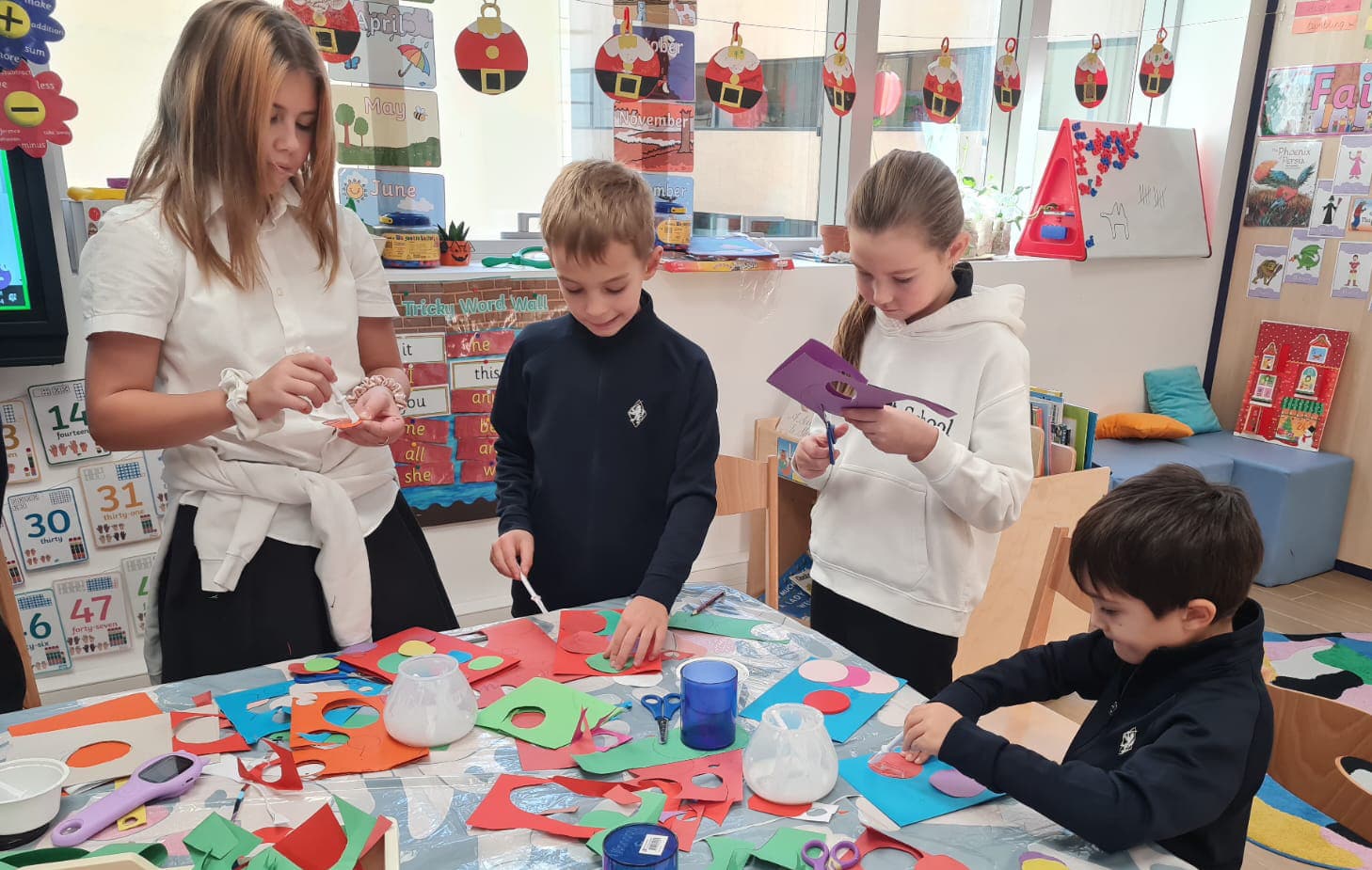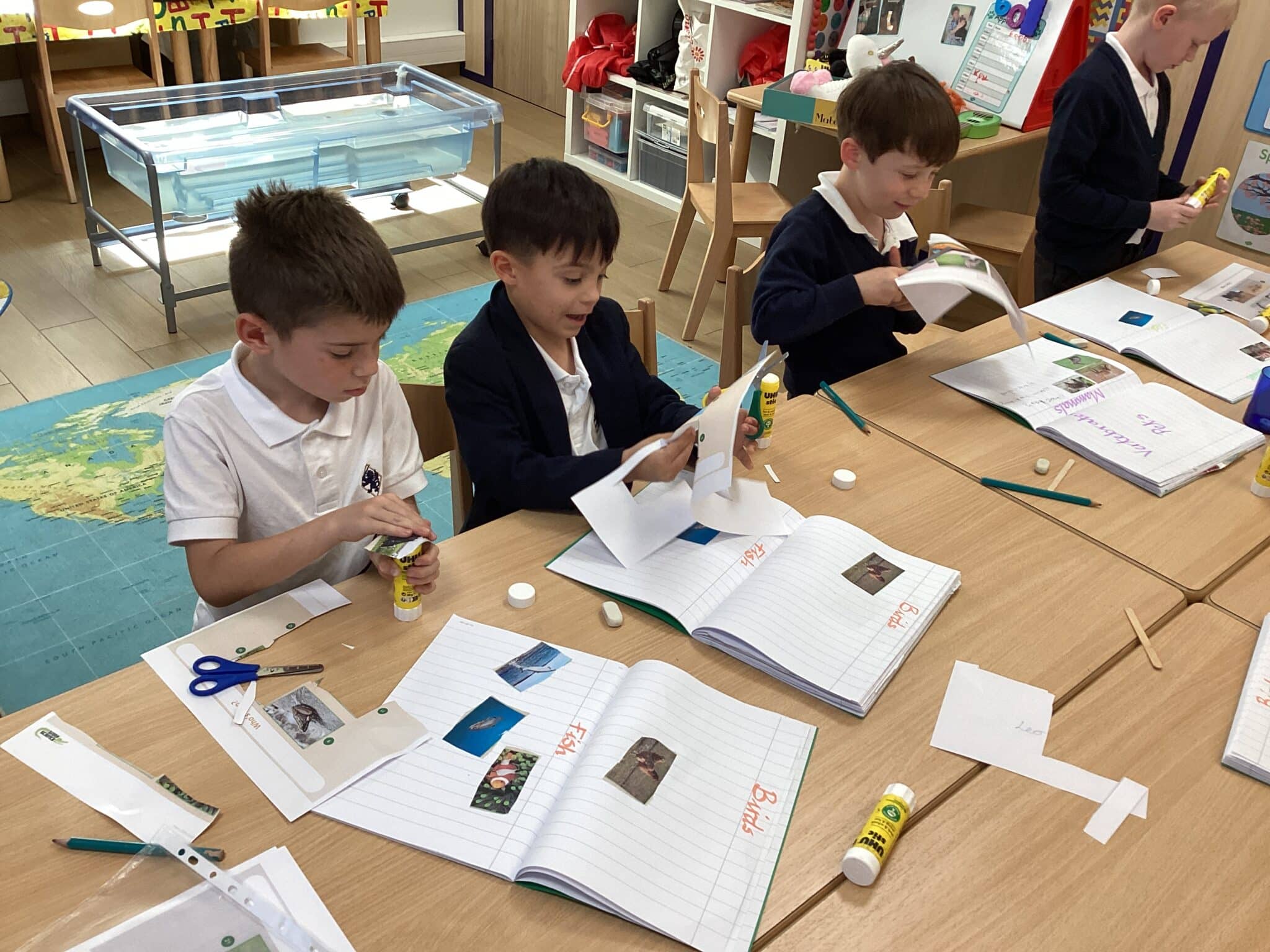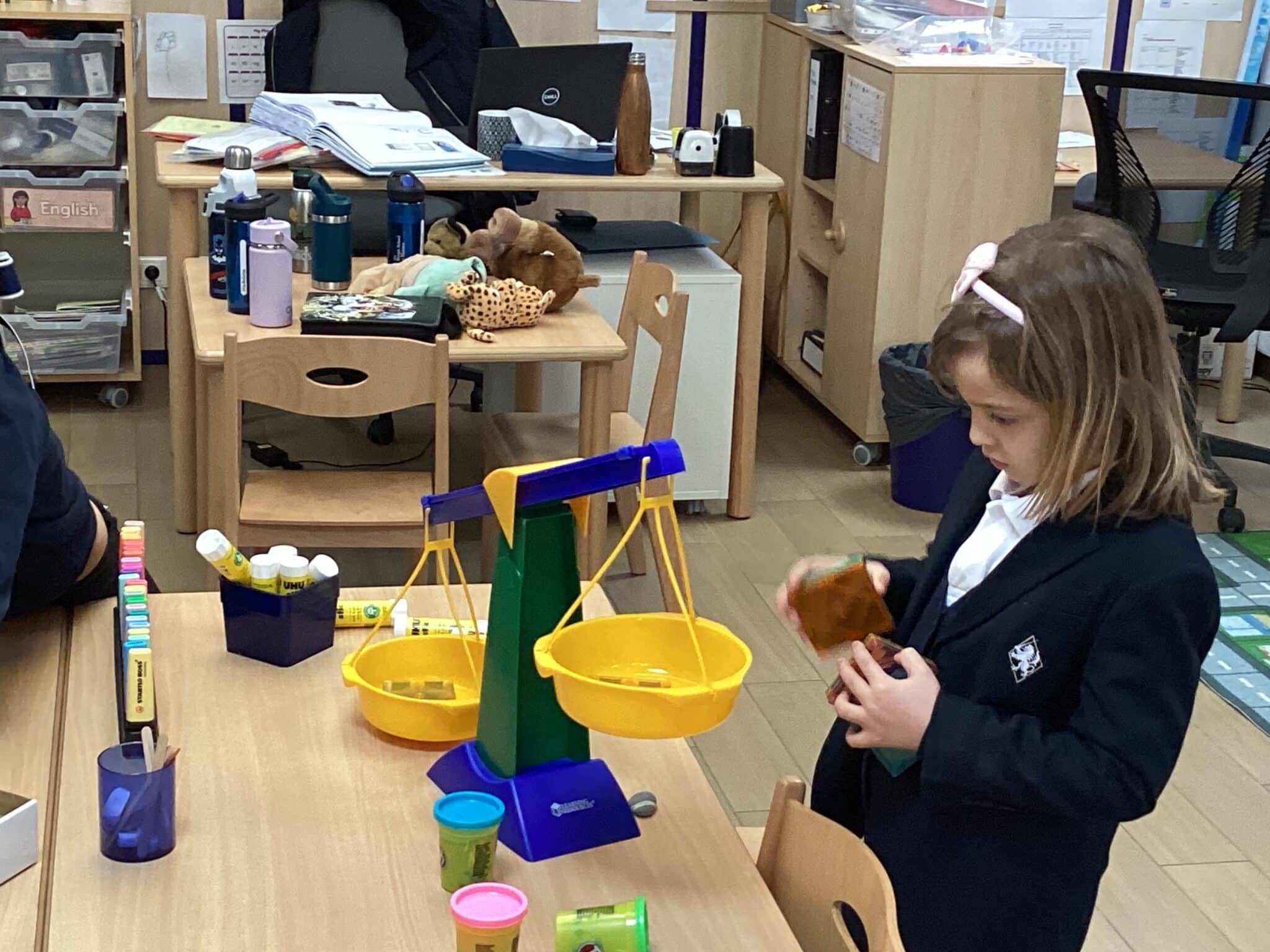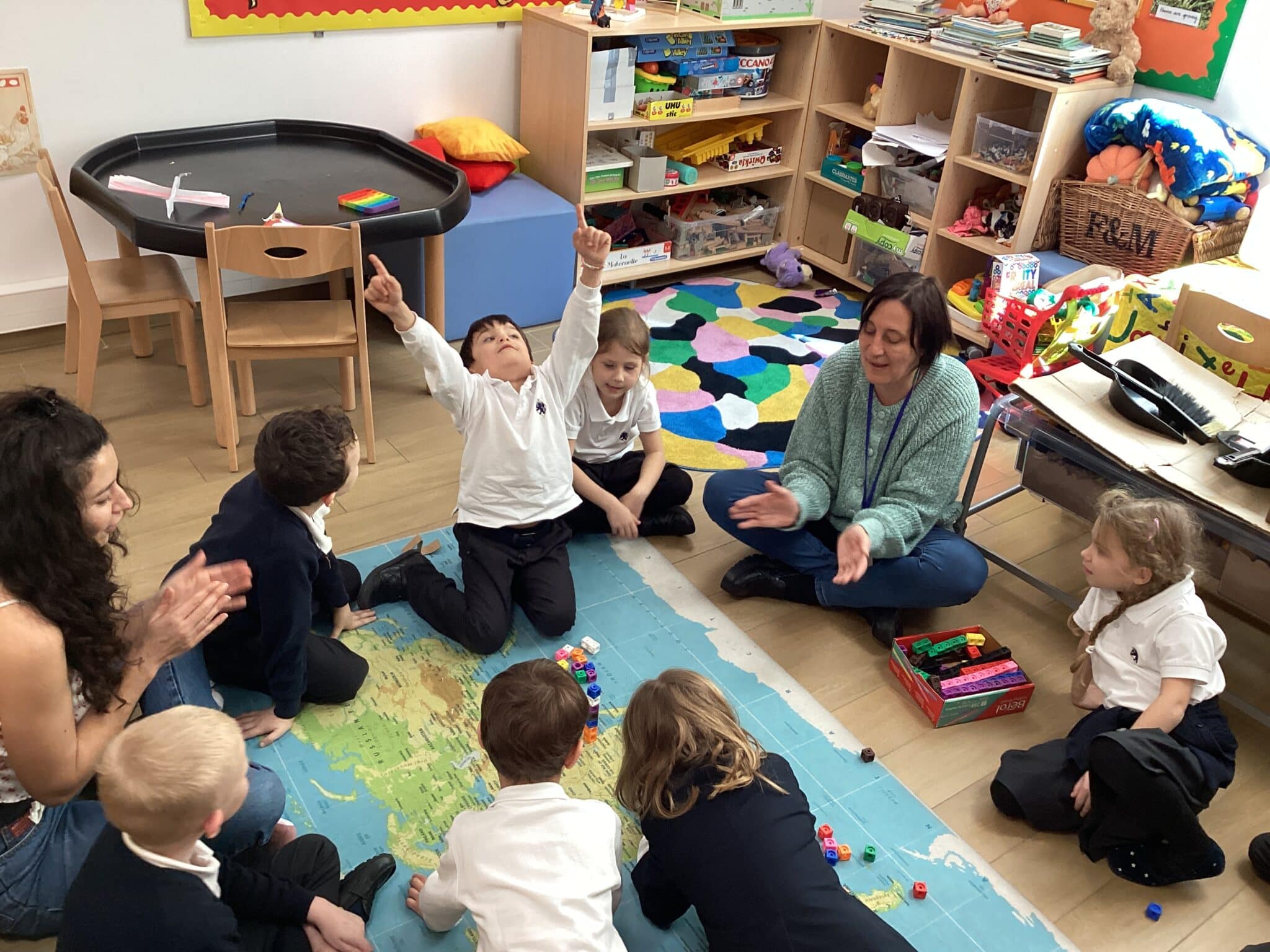Early Years

We follow the British Early Years Foundation Stage Curriculum, which has been specially designed for children from 3-5 years old.
There are 7 areas of learning and development which will guide how we work and the skills that your child will learn through play and activities.
The Prime Areas
The Prime Areas which begin to develop quickly in response to relationships and experiences and which run through and support learning in all other areas are:
- Communication and Language
- Personal, Social and Emotional Development
- Physical Development
These prime areas cover the most essential skills and approaches for your child’s healthy development and future learning.
As children grow, the prime areas will help them to develop skills in 4 specific areas.
The Specific Areas
The Specific Areas include essential skills and knowledge to enable children to participate successfully in society.
- Literacy
- Mathematics
- Understanding the World
- Expressive Arts
These 7 areas are used to plan your child’s learning and activities. Children in the EYFS learn by playing and exploring, being active, and through creative and critical thinking which takes place both indoors and outside.
We are also very lucky in our School to have specialist teachers who enhance our children’s learning in French, PE, ICT and Music.
How you can help your child to prepare for Early Years?
You will be doing many of these things already so in many ways.
It would help your child to become independent if they could attempt the following when they come to school:
Dress themselves:
- Fasten and unfasten buttons or zips
- Hang up their coat
- Put on their shoes /trainers (it helps to label these L and R. This will helpyour child to learn which side is ‘left’ and ‘right’).
Your child will also need to be able to:
- Use a tissue or handkerchief
- Go to the toilet themselves
- Use a knife, fork and spoon correctly
Please ensure that your child is fully toilet trained before they start school
Let your child pursue as many creative activities at home as possible. This will help them when they come to write in school. Provide them with soft-leaded pencils, felt-tipped pens, crayons, chalk and lined/unlined paper.
Encourage use of colour. Draw simple shapes such as squares or circles for them to colour in. This is good for pencil control and hand-eye co-ordination. Let your child draw things their way and always reinforce what you want by encouragement – never criticise.
When writing your child’s name for them, use a capital letter for the initial letter only. Be very careful if you then want them to copy it; children should always be taught how to form letters and numbers correctly from the start. Bad habits learned now are very difficult to rectify.
Take care to use letter sounds not letter names until they can confidently say and recognise the 26 initial sounds.
Use play dough, plasticine, junk materials and glue to make models. Let them use round ended scissors (under supervision) to cut out pictures from old magazines. Let your child play with sand and water whenever this is possible and talk to them as they play.

How you can help your child’s Mathematical development?
Compare things – use words such as longer, shorter, higher, lower, wider, narrower, etc.
As they get older, introduce them to the language used when weighing and measuring –metres, centimetres, litres, millilitres etc.
Number rhymes are a useful tool for learning number names, but they do not help a child to understand one-to-one correspondence. Therefore, reinforce their counting skills by counting with them when they are picking up or touching objects.
Sorting activities and matching games are useful mathematical experiences. These can be as simple as matching cups to saucers, buttons to button holes, spoons to bowls, etc.
Encourage correct number formation.
Look for numbers in the environment e.g. door numbers, car number plates, etc. Understanding number order and one more and one less than through everyday activities, e.g. “We’ve got 3 spoons, how many more are we going to need to make 4?”

How you can help your child’s Communication, Language and Literacy development?
Talk to your child as much as possible. Encourage them to listen and respond sensibly to instruction. Try to answer their questions fully and help them to use a wide vocabulary.
Always be on the look out for interesting things to point out when shopping, travelling, etc.
Encourage your child to speak clearly and discourage ‘baby talk’.
Encourage your child to enjoy ‘writing.’ This may just consist of funny marks at first but encourage them to hear sounds in words and they will begin to make the correlation between the sounds they hear in words and the marks on the paper.
Do not correct any attempts at spelling at this stage as they are developing their confidence and spelling comes a little later. Join the local library and help your child to enjoy books. Read poems and stories to them as often as possible and give them the opportunity to retell simple stories in their own words. Teach them to handle books carefully and with respect.
Put your finger under the words as you read them so that your child will begin to understand how text is read from left to right and on to the next line. Encourage them to tell you what is happening by looking at the pictures and make predictions about what might happen next. Provide them jigsaw puzzles and ‘snap’ games to help them to recognise similarities and differences. Picture and domino games will help to teach visual discrimination.
It is vitally important that your child learns to associate books with pleasure. Therefore, it would be helpful if you could keep the following points in mind when they come home with their reading material:
- Encourage them to read with you every day
- Read for a short time only and try to provide a relaxed, quiet environment
- Discuss the contents and illustrations
- Note the author and illustrator
- Encourage your child to predict what will follow in a story
- In the beginning, read along with them to develop fluency
When they are unsure of a word, supply it and then repeat the sentence that contains the word. This will help to sustain the flow and also imprint the meaning of the word in their mind. Phonic skills (whereby the child learns to decode words) will be taught in the classroom environment and can helpfully be reinforced at home when the child
is secure in this area.
